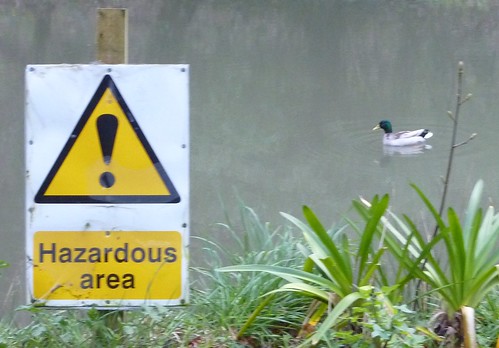The trouble with being too nice when commenting on something is that sometimes the underlying message just doesn’t get through. This applies whether you’re looking at students’ work, observing trainee teachers or evaluating a school’s ICT provision.
Don’t get me wrong: I’m not advocating going in guns blazing, being really negative or thoroughly obnoxious. But if you don’t point out the shortcomings in whatever it is you’re looking at – or, at least, ask the sort of questions that will lead them to realise them for themselves – then really you’re not being nice, you’re being dishonest.
 Getting the right balance between being nice and being honest can be hardMy biggest failing in this area was at a parents’ evening, when I was a newish teacher. I said to this boy’s mother, “Well. he hardly ever does any work, and when he does it’s not very good.” Her response was, “But apart from that, is he doing well?” To my lasting shame, I replied “Yes.” She went away beaming. In my defence, at least I spread a little happiness that evening.
Getting the right balance between being nice and being honest can be hardMy biggest failing in this area was at a parents’ evening, when I was a newish teacher. I said to this boy’s mother, “Well. he hardly ever does any work, and when he does it’s not very good.” Her response was, “But apart from that, is he doing well?” To my lasting shame, I replied “Yes.” She went away beaming. In my defence, at least I spread a little happiness that evening.
Sometimes, you can make the point with a bit of humour. After I had been given a tour of his department, in which I had been shown all sorts of wonderful things his Year 9 (14 year-old) students were doing with ICT, the Head of History said to me, “So what do you think of that, Terry?” I responded as follows:
“I think the way the students are using the educational technology is great. I think it’s really wonderful. In fact, I thought the same thing when I saw that in a Year 4 (9 year-old) class last week.”
After the horrified silence that followed, I said:
“What you’re doing is good. But they’re being taught how to do that in primary (elementary) schools too now. Unless you raise your game, you’re going to start having problems when those pupils are in your lessons.”
Sometimes, you do have to be brutal. In one school, I asked another person in my department to mentor a trainee teacher. Unfortunately, he would take absolutely no notice of anything she told him, or any advice she gave. Exasperated, she asked me if I would observe one of his lessons.
I did, and it was pretty dire. Afterwards I asked him how he thought the lesson went.
“I think it went really well.”, he said.
“Do you think the students knew any more when they left the classroom than when they did when they entered it?”
He thought for a moment. “No.”
“In that case”, I said, “the lesson was a failure, surely? After all, if you called a plumber to fix a leak, and when he left the leak was still there, you’d say that was a failure, wouldn’t you?”
When evaluating a school’s ICT provision or policies, I am always pleasant and polite – after all, I am their guest. But if I were not honest too, I’d be taking their money under false pretences. As an independent outsider, I can say or ask things that a member of the school can’t. If they find my probing or observations really objectionable, they can always have me escorted off the premises! (That hasn’t happened yet, I hasten to say!)
Much of my experience has been with educational technology, but I think the conclusion I've arrived at is true more generally. It is as follows:
Being nice is admirable, as long as it’s not at the expense of honesty.
